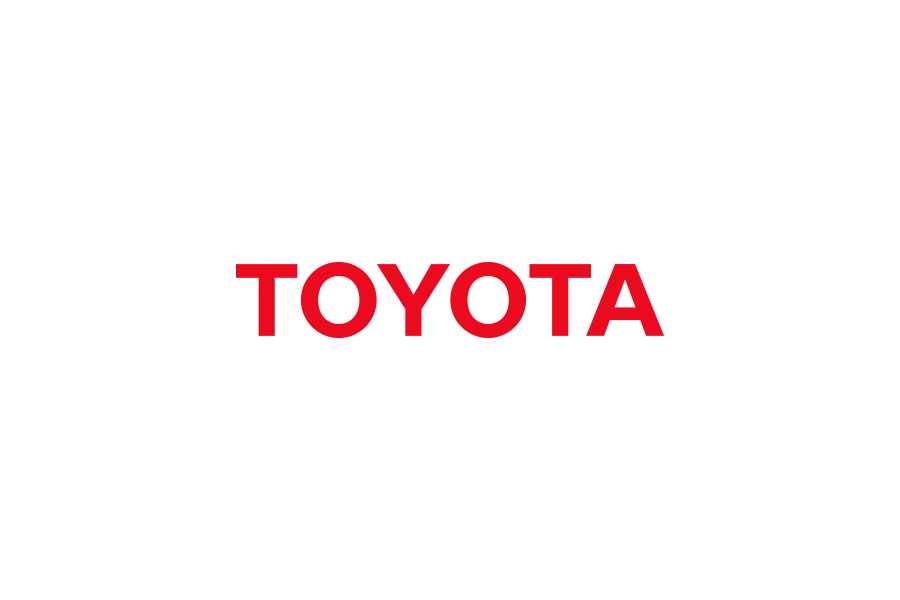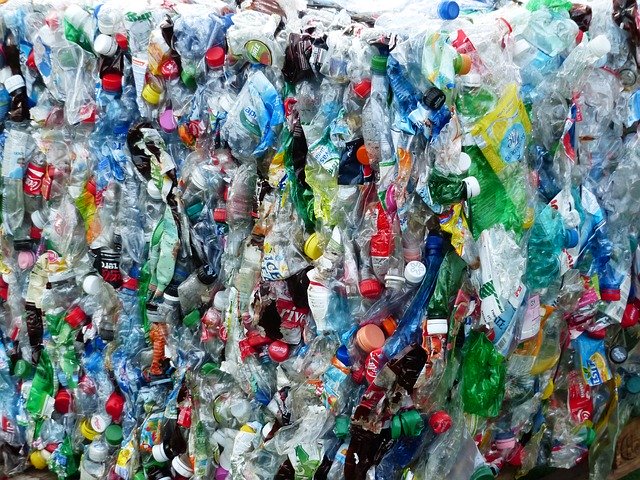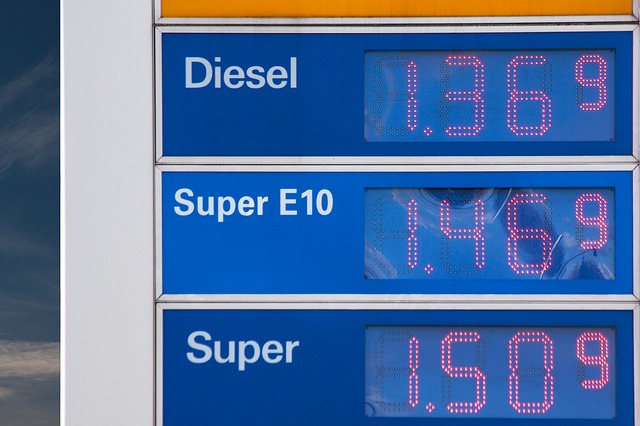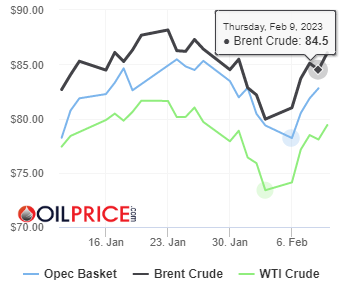
Energy / Automotive News As Reported to 10 Feb 2023
OPEC daily basket price at US$82.78/bl, WTI Crude stood at $79.33/bl
Europe’s first electric charging corridor for trucks
bp pulse is building eight dedicated E-Truck charging stations along a 600-kilometre stretch of Germany’s Rhine-Alpine Corridor, one of Europe’s major road transportation routes. Building on our first E-Truck charging facility opened in Rheinland-Pfalz in the summer of 2022, these charging locations will be capable of supporting more than 20 medium and heavy-duty vehicles per charger, every day, adding significant capacity to the network.
The latest 300kw electric chargers are capable of delivering up to 200 kilometres of range in around 45 minutes, which also happens to be the mandatory time required for truck drivers to take a break from the road. Read More

Casa dos Ventos, a renewable energy company, and Comerc Eficiência, an energy efficiency company of the Comerc Energia Group, signed a partnership with the TransHydrogen Alliance (THA), whose objective is to create new supply chains for the energy transition of European countries.
The purpose of the agreement is to enable the export of green ammonia produced in the Industrial and Port Complex of Pecém (CIPP), in Ceará. The plant is to be built on a 60-hectare site with a capacity of up to 2.4 GW of electrolysis, producing 960 tons of hydrogen per day, and with all phases implemented, will enable the production of 2.2 million tons of ammonia per year. Today the parties signed a Memorandum of Understanding to jointly develop a viable partnership targeting production of the first phase for export to Europe through the Port of Rotterdam, in the Netherlands in the year 2026.
“We want to use the abundant renewable resources in Ceará and neighbouring states to expand our low carbon energy solutions abroad”, says Lucas Araripe, CEO at Casa dos Ventos. The company and Comerc have already signed a pre-contract with the CIPP. “We are joining forces with a group of companies that will be able to contribute to the technological development of the project and with a portfolio of international clients”, explains Araripe.
“The essence of Comerc is the energy transition, combining economy, excellence, and sustainability in all its solutions. And together with Casa dos Ventos and THA, through green hydrogen and ammonia, we take an important step towards decarbonization, both nationally and globally” says Marcel Haratz, President of Comerc Eficiência.
“Green hydrogen is the fuel of the future, but it is already a reality and a global trend. So, we will be at the forefront with a project of this size and partnered with European companies it puts Brazil in a leading position to become an important player in the sector”, concludes Marcel.
“With the vision that Brazil can be a global power in the production and export of green hydrogen through leveraging one of the cleanest energy matrices in the world, the THA chose Pecém as one of the most promising places to produce and supply green hydrogen to Europe. By combining forces with Casa dos Ventos and Comerc, we provide industry-leading skills and capabilities across the entire value chain, from renewable energy supply, hydrogen and ammonia production technology, storage and logistics, maritime transport, and delivery to customers in the port of Rotterdam ” notes Paul Baan, CEO of THA.
Brazil occupies a prominent place in the green hydrogen and ammonia market. It is one of the few countries in the world where the characteristics of the energy matrix allow the production of competitive and large-scale renewable energy, as well as its derivatives. Surveys indicate that the green hydrogen production market in Brazil could be between US$ 15 billion and US$ 20 billion annually by 2040. Read More

The Energy Company Obligation (ECO), first introduced in 2013, is a government energy efficiency scheme for Great Britain. ECO places legal obligations on larger energy suppliers to deliver energy efficiency measures to low income and vulnerable households. ECO is intended to assist in reducing fuel poverty, help to maintain security of energy supply and reduce household carbon emissions – a critical component of achieving our Net Zero ambitions.
ECO3 which ran from October 2018 to March 2022, was the third iteration of ECO and consisted of one distinct obligation. Under the Home Heating Cost Reduction Obligation (HHCRO) obligated suppliers promoted measures that reduced the energy costs for low-income, fuel-poor and vulnerable households. With a focus on insulation and heating measures, estimated lifetime bill savings of £8.253 billion had to be achieved. There were also sub-obligation targets to achieve a proportion of these savings from households in rural areas and from households with harder to insulate solid wall construction. The ECO3 final determination report provides details on overall scheme performance and our final determinations of energy suppliers’ achievement against their obligations. Read More
Ofgem has on Thursday 9 February 2023) announced that, following constructive engagement with Ofgem, CO-OP Energy has agreed to deliver additional energy efficiency measures after the company did not meet its Energy Company Obligation (ECO3). CO-OP Energy was a domestic supplier previously but exited the market in August 2019. It has committed to make up any shortfall in energy savings against its legal requirements.
ECO3 was a government energy efficiency scheme, which ran between 2018 and 2022 in Great Britain, administered by Ofgem, to promote energy efficiency measures and to help fuel poor and vulnerable households heat their homes and cut bills, for example by replacing a broken heating system or upgrading an inefficient heating system.
CO-OP Energy has agreed with Ofgem to make up the shortfall and recognised its non-compliance with its obligation, having only achieved 36.37% of its cost saving (or obligation) target by 31 March 2022. Suppliers are allocated an overall target based on their share of the domestic energy market in Great Britain. Read More

To realize a decarbonized society, the introduction of a large amount of renewable energy is essential. However, renewable energy is characterized by the fact that its ability to generate power fluctuates depending on the weather and the time of day. There is hope that hydrogen can serve as a regulating force to adjust such fluctuations in power, and water electrolysis is a key technology for converting that energy.
This review article investigated a wide range of issues for each major water electrolysis method, such as restrictions on using renewable energy as a power source for water electrolysis, the durability of water electrolyzers, and catalyst degradation. It then described the performance requirements for water electrolysis systems and materials that can adapt to renewable energy fluctuations and the issues that need to be discussed going forward.
TMF has positioned environmental and energy issues as important themes for a sustainable mobility society, and in 2017, established the “Research Program to Support Innovative Hydrogen Energy Solutions” that targets carbon-free hydrogen (green hydrogen) cost reductions across the entire hydrogen supply chain of “producing,” “transporting,” and “using.” In this program, 29 promising research themes have been selected and provided grants through open calls over three years. Additionally, regular evaluations and advice by an evaluation committee of experts in hydrogen and energy systems and opportunities for exchanges and mutual study among selected researchers have been provided. Read More

The Ocean Cleanup and the United Nations Development Programme have joined forces to eliminate plastic pollution around the globe. We explain what this new deal means, and how The Ocean Cleanup is bringing our mission to the forefront of global attention.
Our mission is to rid the world’s oceans of plastic. To do this, we look to work with others who can help us – from local waste management operators to the most impactful international organizations, such as our new partnership with the United Nations Development Programme. At The Ocean Cleanup, we know that we can’t solve the problem of ocean plastic alone. We know that cleanup is non-negotiable: ongoing efforts to clean the Great Pacific Garbage Patch (GPGP) are essential to remove the legacy plastic which is already there, and will remain there indefinitely unless physically removed – all the time degrading into microplastics. Our Interceptors can also play an equally vital role in preventing new plastic emissions from reaching the ocean and helping stop the problem from worsening.
But we’re not just cleaning plastic; we’re monitoring plastic too. While our Interceptors are deployed in rivers, we are also monitoring how much plastic is flowing into the ocean. Monitoring and data gathering is now an integral part of our Interceptor river deployments, and monitoring plastic emissions from rivers means we can measure the impact of anti-plastic pollution policies and helps ensure stronger accountability of decisions.
Plastic emissions should be seen in a similar context as carbon emissions. In the battle against climate change, it has become essential to monitor carbon emissions because knowing this figure means we can check whether our solutions are really working and confirm that we’re moving in the right direction, and how quickly. In a similar way, riverine plastic emissions will become a central data point in the fight against plastic pollution. Together, The Ocean Cleanup and UNDP have the opportunity to become the leading source of factual and up-to-date information on riverine plastic emissions, Read More

The co-founder of Airbnb.org has just donated $25 million to support the Dutch nonprofit The Ocean Cleanup as they prepare to assemble and deploy the largest plastic capture system ever developed for use in the ocean. The Ocean Cleanup’s pilot-scale ocean cleaning system, System 002, has been deployed in the Great Pacific Garbage Patch (GPGP) located between Hawai’i and California since late 2021. It has so far removed close to 200,000 kilograms, or roughly 440,000 pounds, of plastic that otherwise would have remained trapped for decades or more. Read More
US gas producers, seeking greater exposure to international markets, have recently pushed into the LNG export sector. But their strategy is more about diversification than an overhaul of the E&P business model, executives said this week. “We’re not going to be big LNG players like Cheniere or Freeport or anything like that,” Devon Energy CEO Rick Muncrief said at the NAPE conference in Houston on Wednesday. “I mean, from our perspective, it’s how can we get some exposure in international markets and help our allies around the world. We do the same thing with oil.”
Last year, Devon inked an initial agreement with floating LNG (FLNG) specialist Delfin Midstream to help develop an offshore liquefaction facility off Louisiana. The deal includes a pre-sanction investment by Devon and a heads of agreement to finalize a 1 million ton per year (0.142 billion cubic feet per day) tolling agreement for capacity in Delfin’s first FLNG project. Muncrief said Wednesday that the project would take about 10% of Devon’s gas production volumes. Read More
Norwegian operators have stepped up to relieve Europe’s energy supply security concerns, with a record 24 upstream projects approved last year alone. That’s out of a total 35 projects sanctioned since 2020 under Oslo’s temporary tax regime, amounting to almost $43 billion of greenfield investment, according to consultancy Rystad Energy. Aker BP operates 17 of the 35 projects on the list, including the Yggdrasil hub (start-up 2027), currently Norway’s biggest future oil and gas scheme. Equinor operates 11 projects, with Breidablikk (start up 2025) seen as a key contributor to oil output while Irpa (start-up 2026) and Shell’s Ormen Lange phase 3 (start-up 2025) will help maintain a high flow of gas to Europe. Read More

Taiwan imports nearly all of its energy and would struggle to keep power flowing during a disruption to supply lines.Even with the constant threat of Chinese aggression in the background, Taiwan plays an outsized role in the global economy. It was the 22nd largest economy and the world’s 15th largest exporter of merchandise in 2020. Taiwan’s economy proved very resilient to the COVID-19 pandemic with manufactured product exports helping power real GDP growth to 3.3 percent in 2020 and 6.5 percent in 2021, according to data from the Chung-Hua Institution for Economic Research in Taiwan, even while economies in the U.S. and E.U contracted over the same period. Semiconductor exports account for about 38 percent of Taiwan’s total exports and chipmakers such as TSMC, UMC and others helped Taiwan’s economy through the worst of the pandemic. Read More

Chevron Corporation (NYSE: CVX) has been awarded the 2023 Platinum Bell Seal for Workplace Mental Health by Mental Health America (MHA). The Bell Seal is a first-of-its-kind workplace mental health certification that recognizes employers who strive to create mentally healthy workplaces for their employees.
Employers that receive MHA’s Bell Seal are nationally recognized for advancing workplace standards and practices that enable mental health and well-being. Organizations are recognized at different levels – bronze, silver, gold or platinum – and are assessed based on how mental health is approached via four categories: workplace culture, benefits, compliance and wellness programs. Platinum status reflects Chevron’s dedication to employee well-being with outstanding scores in all areas. Read More

Under the patronage of the Ministry of Energy and Infrastructure, Shell UAE held the Shell Startup Engine Demo Day at Sharjah Research, Technology, and Innovation Park today, giving a platform for eight ambitious startups to pitch their innovative sustainable energy solutions to an audience of government officials and private sector investors and partners.
In partnership with StartupBootcamp, Shell Startup Engine is the local chapter of the group’s global flagship programme, designed to support early to mid-stage energy startups looking to play a role in tomorrow’s smarter, cleaner energy future.
During the event, H.E. Eng. Sharif Al Olama, Undersecretary of the Ministry of Energy and Infrastructure for Energy and Petroleum Affairs, said: “The UAE continues to take ambitious steps to build a low-carbon future through innovative and tech-enabled solutions that serve the energy sector and help achieve the objectives of its Net Zero by 2050 Strategic Initiative.” He added: “In line with the directives of our wise leadership, we seek to engage all sectors in the fight against climate change. The private sector plays an active role in our decarbonization drive by reducing emissions from their operations and services.” Mr. Ali Al Janabi, Chairman for Shell Group of Companies in the UAE and Iraq said “At Shell, while we continue to pursue the development of sustainable energy and mobility solutions, we recognise that accelerating the transition to a net zero emissions world requires more work and we need to create opportunities for innovation and advancement for society at large. The startup ecosystem in the UAE has enabled entrepreneurs for years, and we had the privilege to bring together a talented cohort to be part of our flagship programme for the first time in the region with StartupBootcamp.”
Mr. Hussain Al Mahmoud, CEO of SRTIP, said: “We are proud to associate ourselves with Shell in this ambitious programme designed to allow innovation-driven startups to pitch their sustainable energy solutions to a select group. This is part of our several initiatives to support the energy sector through accelerators and cooperation programs, in line with the UAE government’s plan to switch to clean and renewable energy. Our global accelerators program (Sharjah Advanced Industry Accelerator (SAIA)) has attracted many startups from around the world, positioning us as a testing destination for advanced technologies, through research and development and talent development. We pride ourselves as an innovation hub focused on driving the development of solutions to the challenges facing today’s world, by energising partnerships between the public and private sectors, in addition to generating demand, creating job opportunities, and attracting investment to the region.”
Utilising mentors and coaches from within the company and beyond, including experts from around the world, Shell is committed to empowering startups through the programme, allowing them to gain insights into the energy sector and build the expertise they need. The participants will have the opportunity to connect to a wider community, strongly positioning their startups for success. Winners from the Demo Day will have access to over €500,000 in exclusive partner deals from technology providers and continued post-programme support through exclusive access to content, industry platforms and events. Read More
| Oil and Gas Blends | Units | Oil Price $ | change |
| Crude Oil (WTI) | USD/bbl | $79.11 | Up |
| Crude Oil (Brent) | USD/bbl | $85.72 | Up |
| Bonny Light | USD/bbl | $83.95 | Down |
| Saharan Blend | USD/bbl | $84.47 | Up |
| Natural Gas | USD/MMBtu | $2.44 | Up |
| OPEC basket 09/02/23 | USD/bbl | $82.78 | Up |

OilandGasPress Energy Newsbites and Analysis Roundup | Compiled by: OGP Staff, Segun Cole @oilandgaspress.
Disclaimer: News articles reported on OilAndGasPress are a reflection of what is published in the media. OilAndGasPress is not in a position to verify the accuracy of daily news articles. The materials provided are for informational and educational purposes only and are not intended to provide tax, legal, or investment advice.
Information posted is accurate at the time of posting, but may be superseded by subsequent press releases
Please email us your industry related news for publication info@OilAndGasPress.com
Follow us: @OilAndGasPress on Twitter |
Oil and gas press covers, Energy Monitor, Climate, Renewable, Wind, Biomass, Sustainability, Oil Price, LPG, Solar, Marine, Aviation, Fuel, Hydrogen, Electric ,EV, Gas, energy monitors,TotalEnergies, Shell, BP, Chevron



